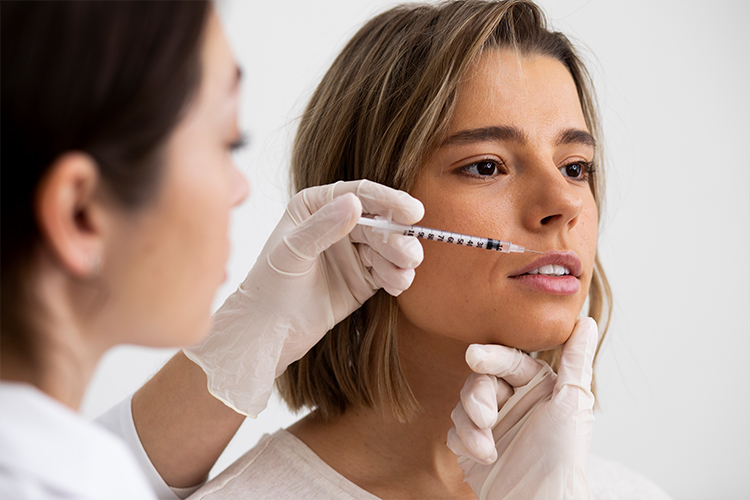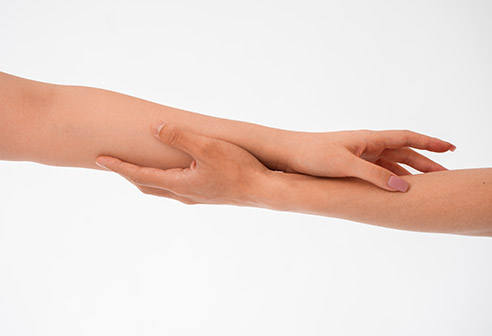
Polynucleotides are nucleotide chains, which are called the building blocks that make up DNA. Our DNA has a significant impact on numerous body functions, including the development of our skin. When polynucleotide chains are applied to the skin via injection, they enable the repair of damaged DNA cells in the skin. After this treatment, the cells begin to work better. It particularly stimulates fibroblast cells, which are responsible for the formation of connective tissues like collagen and elastin. This way, the skin takes shape and regains its lost volume. Polynucleotide chains also have a hydration-enhancing, inflammation-reducing, and pigmentation-stabilizing effect. Polynucleotides also support the body's fight against free radicals. It especially protects your skin against damage caused by the sun and stress. Medical Aesthetic Doctor Dr. Lida Çiteli, who serves her patients and clients in Istanbul, explained what you need to know about Polynucleotides for you.
What are Polynucleotides?
Polynucleotides are nucleotide chains and are the building blocks that make up our DNA. Polynucleotide treatment enables the body to fight free radicals. It prevents the damage that factors like the sun's UV rays and the stress in our daily lives can create on our skin.
Due to these properties, it is a regenerative treatment. That is, it works by making some changes in the form of DNA, triggering the natural mechanisms that will enable the body to produce much healthier skin cells.
Who are Polynucleotide Treatments Suitable For?
Polynucleotide treatments promote cell growth and regeneration. This allows the skin to regain its moisture and elasticity. Polynucleotide treatments:
Are effective against sagging, fine lines, and deep wrinkles that occur as a result of the skin losing its collagen and elastin fibers during the aging process.
- Are suitable for those experiencing dry skin.
- Help improve dark circles around the eyes.
- Are effective for people with rosacea.
- Are effective against acne scars.
- Are suitable for people experiencing hyperpigmentation.
In Which Areas Can Polynucleotides Be Used?
Polynucleotides, an innovative treatment in the medical aesthetics world, can be used in many areas of the body. Most users use polynucleotides on the entire face, especially the cheekbones and around the eyes. In addition to these:
- Neck
- Eyebrows
- Thighs
- Eyelid and eye area
- Lips
- Décolletage
- Inner arms
- Beard
- And polynucleotide treatment can be applied to the scalp area.
What is the Difference Between Polynucleotides and Other Treatments?
The difference between polynucleotides and injection treatments like dermal fillers or Profhilo, which are used for similar purposes, is that they repair the skin's DNA. As a result of this repair, the body's natural collagen and elastin production is stimulated. The results of polynucleotides appear in the longer term, but their duration of effect is also longer than other treatments.
It would not be correct to say one treatment application is better than another. The best treatment is the one that suits your needs and subjective conditions. Therefore, you should consult your Medical Aesthetic Doctor or Dermatologist before deciding on any treatment application.
What are the Benefits of Polynucleotides?
Polynucleotides, which are good for numerous skin problems, provide many advantages compared to cosmetic interventions done with traditional or surgical methods. These are;
Extremely few side effects – There are no side effects other than temporary effects like slight bruising or small swellings that may occur in the injection area.
A quick and practical application – Each polynucleotide treatment can be completed in about thirty minutes.
Long-term results - As the skin cells renew, the healing effect of the treatment continues. This way, you get long-term results.
How Long Do the Effects of Polynucleotides Last?
Many users begin to see the results within three months at the latest after the treatment course is completed. After this stage, the treatment continues to be effective for up to six months. In the next stage, receiving a maintenance treatment every three to four months ensures that the results are much more permanent.
How long do polynucleotides last?
Most people get the best results within three months of completing their treatment course. After that, the results usually last for about six months, and then most people have a single maintenance treatment every 3-4 months.
Frequently Asked Questions About Polynucleotides
Is Polynucleotide Treatment Painful?
This treatment, performed using the microneedling method, is extremely well tolerated by the body. This ensures that users do not feel any pain or discomfort during the procedure. This is because the area is numbed with topical anesthetic creams before the injection.
How Many Sessions of Polynucleotide Treatment are Applied?
The number of sessions for the treatment is decided according to the person's skin problems and their goals for the treatment. Generally, experts recommend a course of three to six sessions to get optimum results.
Can Makeup Be Applied After Polynucleotide Treatment?
To allow the skin to heal properly, it is beneficial not to apply makeup for 24 hours following the treatment.
When are the Results of Polynucleotide Treatment Seen?
Some improvements can be seen within a few weeks after the first session. However, for the main results, the skin's increased collagen production is awaited. The healing effect continues as time passes.
Is Polynucleotide Treatment Suitable for All Skin Types?
Yes. It is possible to say that it is mostly a suitable treatment for all skin types. However, a consultation is still necessary to determine if you are individually suitable for the treatment.



